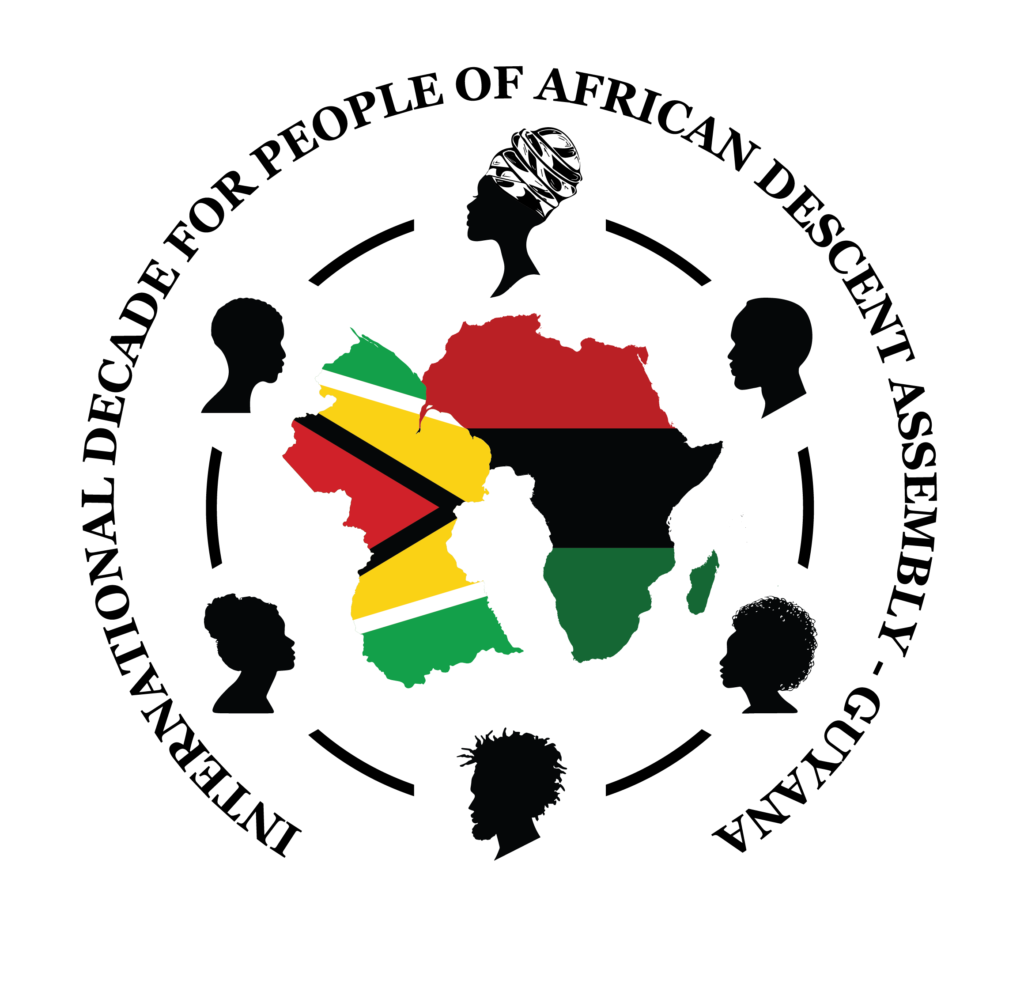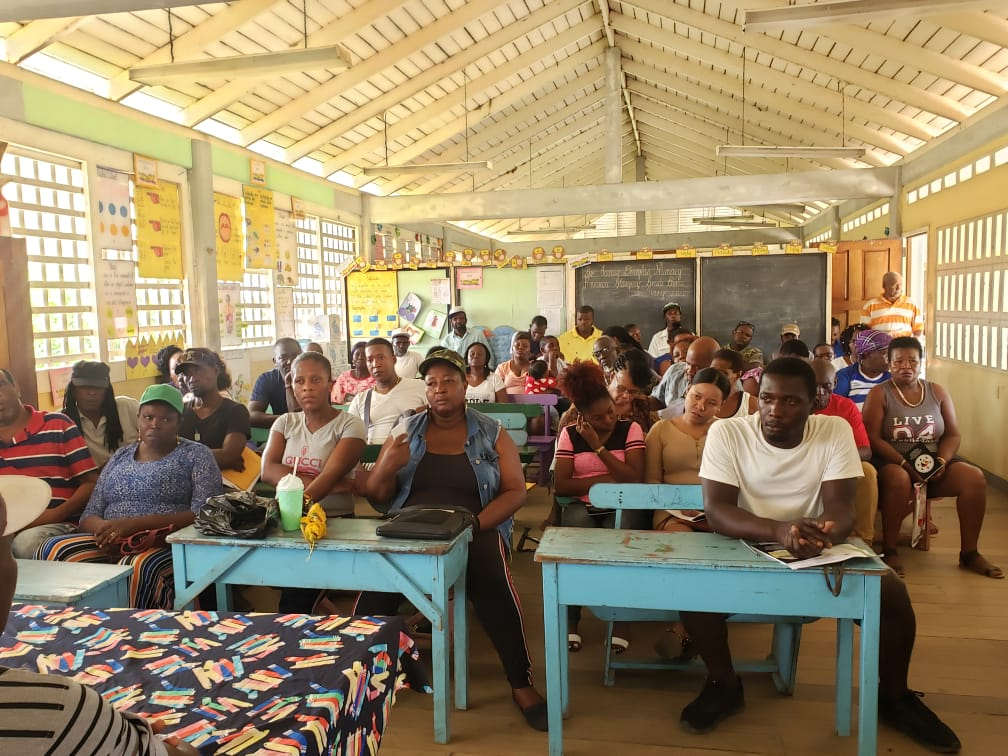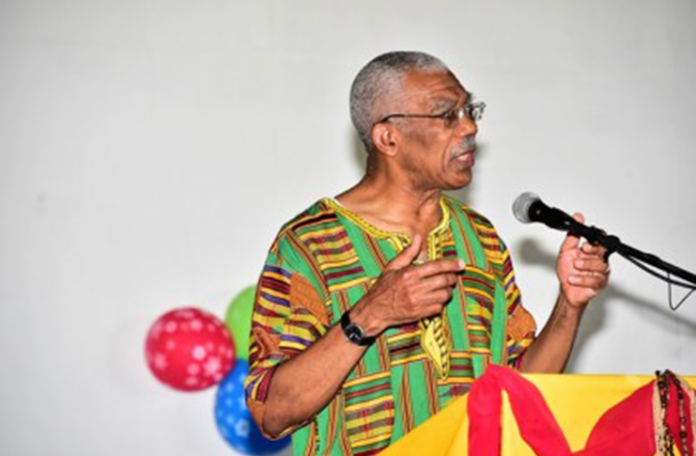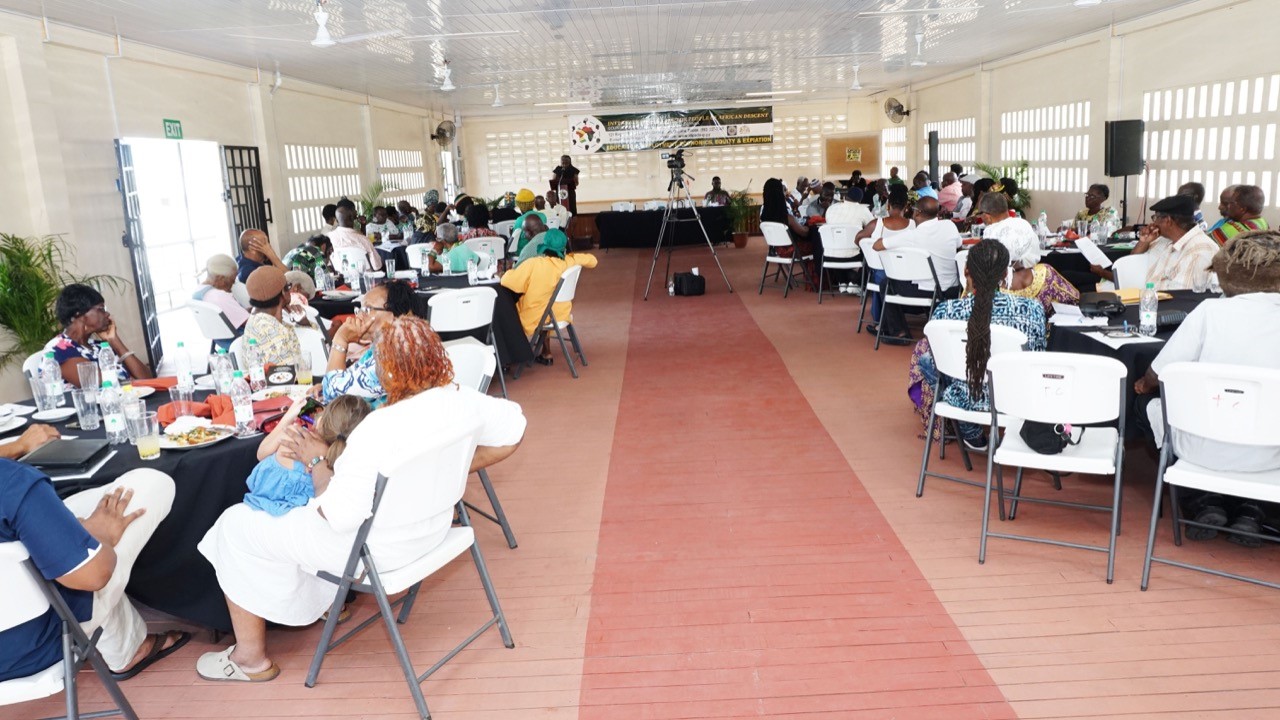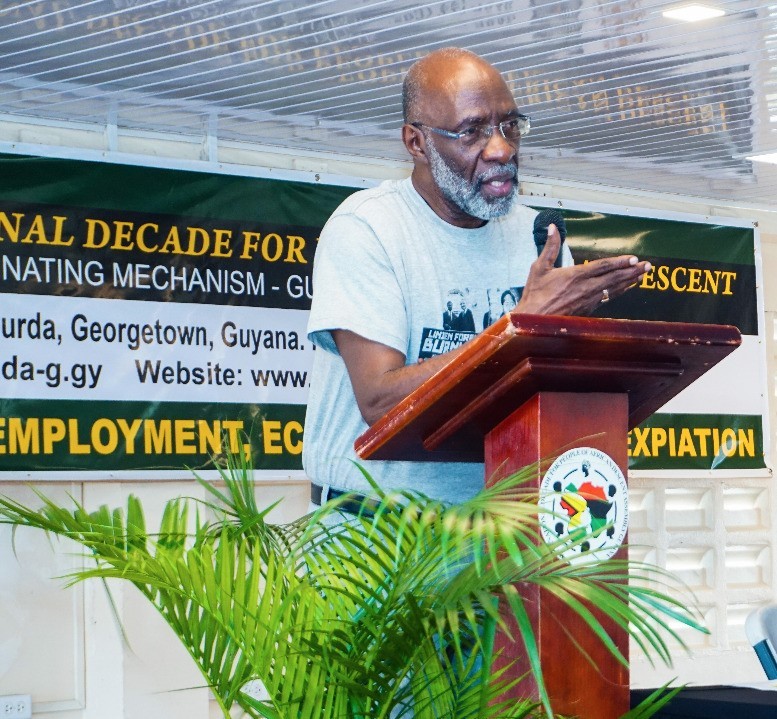The clock is ticking The International Decade for People of African Descent was proclaimed by the General Assembly of the United Nations, via Resolution 68/237 on the 23rd December 2013. The ‘International Decade’ runs from 2015 to 2024 inclusive. We are deep into the fourth year of the Decade.
The designation of the ‘International Decade’ acknowledges that Africans were the victims of the greatest crime against humanity and continue to suffer from dispossession and discrimination. The Decade is a recognition that persons of African descent have not yet fully overcome the legacy of colonial underdevelopment which continues to contribute to their present condition.
The contributions of the people of African Descent in Guyana are evident as this country was built on the back of slaves. The blood, sweat and tears of the African watered the land. These slaves were brought to Guyana to work on the sugar plantations and endured the worst crime committed against humanity (the transatlantic slave trade). However, the cruel institution of slavery could not quench the spirit of the slaves as many revolted and eventually freedom was won. The freed slaves were industrious and bought villages and through their efforts Guyana contributed greatly to the development of Guyana. African descendants have also contributed to the cultural tapestry of Guyana, as the slaves even though efforts were made to strip them of their culture, religion and very identity, still managed to pass down from generation to generation their rich heritage.
However, despite their contribution, according to the UN, people of African Descent are among the poorest and marginalized groups. They are often victimized and subject to police brutality and racial profiling. People of African descent have limited access to justice, quality education, health services, housing and social security. Not only are they discriminated on the basis of color but also age, sex, language, religion, political or other opinion, social origin, property, disability, birth, or other status. It is for this reason that the International Decade for People of African Descent was proclaimed by UN General Assembly resolution 68/237. The decade will be observed from 2015 to 2024. It allows not only the UN but Member States, civil society and all other relevant actors to join together with people of African descent and take effective measures for the implementation of the programme of activities in the spirit of recognition, justice and development. The decade requires us to among other things-
- remove all obstacles that prevent equal enjoyment of all human rights, economic, social, cultural, civil and political, including the right to development,
- promote the effective implementation of national and international legal frameworks;
- engage in educational and awareness raising activities to foster equality and restoring the dignity of people of African Descent,
- ensure access to justice and promote the development of the people of African Descent and take measures against poverty.
The ‘International Decade’, is call for concerted action to bring about change in ensuring that persons of African descent gain recognition, justice and development. Countries are taking action to advance the objectives of the ‘International Decade.’ From Argentina to Italy, Lithuania to Mexico practical initiatives have been launched to promote greater justice, recognition and development for persons of African descent.
This is therefore the time for action, not prevarication. This is the time for unity, not division. There is an old African saying, when elephants fight, it is the grass which get trampled.
The ‘International Decade’ at the local level should be transformative. It should lay the foundation for overcoming the historical and structural impediments to African- Guyanese empowerment. It should imbue African-Guyanese with a sense of pride and with a renewed purpose. It should result in concrete benefits.
President David Granger, addressing the Annual Cuffy 250 Forum in 2016, sounded the bugle for action. He called on African-Guyanese to organize and not agonise. The President outlined a five point proposal, which has been adopted by the International Decade for People of African Descent Assembly-Guyana. The five point proposal calls for emphasis to be placed on education, employment, economic empowerment, equality and expiation. President Granger’s five point proposal promotes the themes of the decade: recognition, justice and development.
The duty of this Assembly is to move that proposal forward. The work of this Assembly is to accelerate local awareness of the International Decade and to take action to advance and to implement its programme of action.
This programme of action should be inclusive. Greater recognition for African-Guyanese should not be achieved at the expense of derecognizing others; justice for African-Guyanese should not be at the price of injustice; development of African-Guyanese should not result in the underdevelopment of others.
The Assembly’s programme is one aimed at ensuring African-Guyanese recognition, justice and development. It is a struggle ‘for’ rather than a struggle ‘against’ any other group.
I want to leave six important lessons, drawn from the history of African-Guyanese which can be instructive in supporting the work of this Assembly.
The first (1st) of these lessons is hope. I do not consider the African-Guyanese community to be in a state of crisis. African-Guyanese, like all ethnic communities, have its problems. No community is without its difficulties. No community is without hope. The African-Guyanese community must not therefore succumb to the trap hopelessness. The African community is not without resources to overcome its present difficulties. The African Guyanese community can find answers to its problems from within its bosom.
The African-Guyanese community has cultural resources; it has its traditions and values passed on through generations. The International Decade for People of African Descent is an opportunity to affirm the values of fortitude, prudence, self-organization and solidarity which have sustained Africans throughout their struggles.
The second (2nd) of these lessons, as I mentioned, is that of industry. The fore-parents of African-Guyanese did not sit on their hands. They took action. No one is going to do African Guyanese a favor in their quest for improving their position in society. You have the resources to do much more because your fore-parents were able to achieve much with less. If the challenges facing this community are to be overcome, if the problems that afflict persons of African descent are to be addressed, this has to be done through the efforts of the African-Guyanese community. African-Guyanese should therefore organize for action.
The third (3rd) lesson is that there can be no dignity without freedom and no freedom without dignity. The world today is rife with new forms of slavery and exploitation. The struggles of African-Guyanese for greater dignity should be associated, therefore, with the efforts to end all forms of human subjugation and to ensure work with dignity, bread with dignity and freedom with dignity.
The fourth (4th) lesson is the legacy of the importance which African-Guyanese fore-parents bequeathed. That gateway is education. On July 31, 2015, during an address to a deed handing-over ceremony of the South Campus of the St. Augustine Campus of the University of the West Indies, President David Granger observed that “our fore-parents saw education as the vehicle for self-emancipation, enhanced self-esteem, social equality, economic well-being and political representation.”
Education has allowed scores of African-Guyanese, through all generations since Emancipation, to graduate out of poverty. Education has brought greater respect. It provided choices and unlocked opportunities for employment. Education must remain a bedrock of efforts to promote the political and economic empowerment of African-Guyanese.
The fifth (5th) lesson from history is rekindling the kinship with the land. Africa-Guyanese have a proud and strong tradition in agriculture. After the Emancipation of slavery, a peasantry comprised of freed African slaves developed throughout the villages. Africans need to return to the land. African Guyanese have a strong tradition in agriculture. We should reignite that tradition as a means of fostering African-Guyanese economic empowerment.
The sixth (6th) lesson concerns our villages. The village movement in Guyana was a creation of freed Africans who pooled their resources and bought abandoned plantations. The village was an organic community. In newly established villages, there was a strong sense of communal solidarity. People built together; their bore their losses together; they supported each other in times of distress. People looked out for one another other; they took care of each other. Children were not just the responsibility of their parents. The education of children was also the responsibility of the entire village. That spirit of communal solidarity needs to be resurrected.
Villages are being revitalized. This is a national policy. The majority of Guyanese still live in villages. Local democracy has been restored to allow residents to have a greater say in the decision-making of their communities. Village infrastructure and social services are being improved. Village economies are being stimulated to generate jobs and incomes. This Assembly, in its programme of work, is expected to pay attention to the development of villages – the cradle of African-Guyanese empowerment.
The agenda for recognition, justice and development, is before us all. The task before African Guyanese is to not only invent solutions but to tap the unquestionable cultural resources that lie at their disposal. These resources will help in advancing the development of African-Guyanese in our multicultural society.
African-Guyanese should assume responsibility for their future. The task of self- emancipation lies in your hands and your hands alone. Ensure that you use those hands responsibly.
I wish every success to this Assembly. I thank you.

